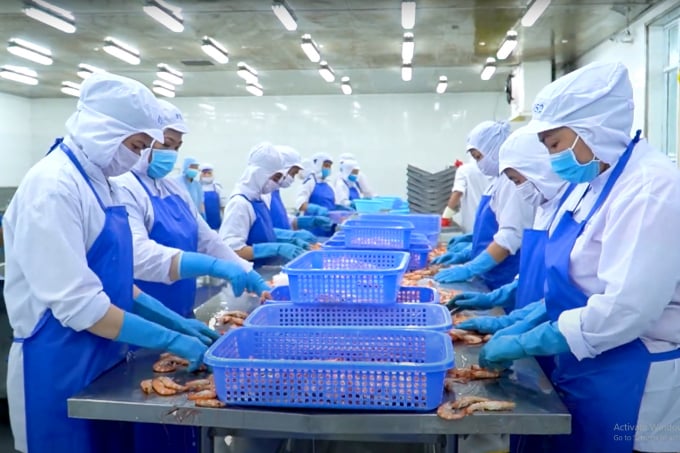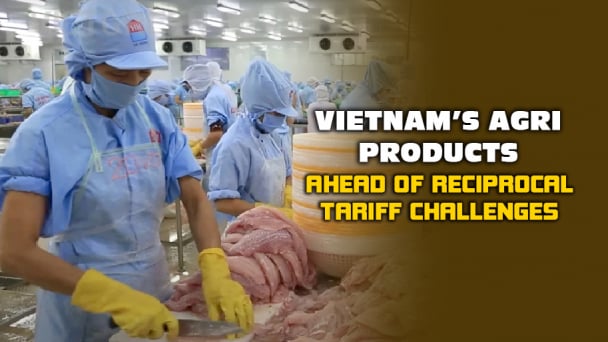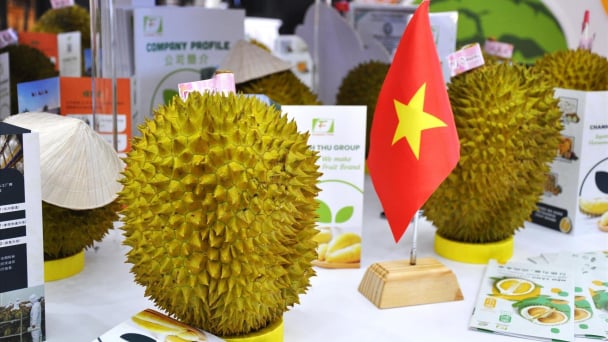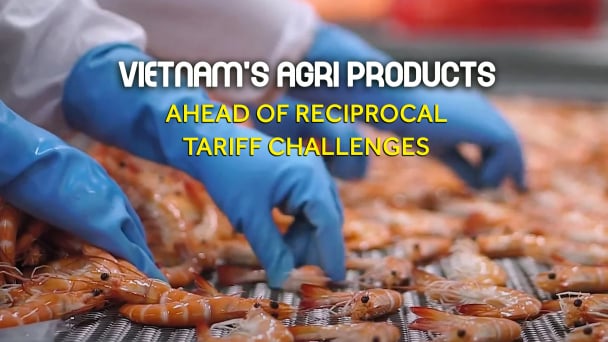May 31, 2025 | 10:44 GMT +7
May 31, 2025 | 10:44 GMT +7
Hotline: 0913.378.918
May 31, 2025 | 10:44 GMT +7
Hotline: 0913.378.918

Vietnamese seafood is promoted to the EU thanks to the EVFTA. Photo: Thanh Son.
Speaking at the Vietnam – European Union (EU) agricultural business forum on July 17 in Ho Chi Minh City, MARD Deputy Minister Tran Thanh Nam stated that the two parties actively discussed agricultural business trade and investment opportunities.
The two parties have agreed to enhance trade exchange on the acceleration of market opening, creating favorable opportunities for the agro-forestry-fishery (AFF) products of strength.
Both parties advocated for a review and extension of Geographical Indication listings (GIs). This creates new potential for joint development in craft and specialty products and increases mutual knowledge of Vietnam and the EU's cultural and traditional characteristics.
According to Deputy Minister Tran Thanh Nam, agricultural business relations between Vietnam and the EU have been steadily improving, notably since the implementation of the EU- Vietnam Free Trade Agreement (EVFTA).
The agricultural, forestry, and fisheries trade volume between Vietnam and the EU climbed from USD 4.3 billion in 2015 to USD 4.5 billion in 2020, USD 5.2 billion in 2021, and USD 2.66 billion in the first five months of 2022.
Vietnam's primary market for commodities such as coffee, cashew nuts, pepper, seafood, and wood and wood products in the EU. Vietnam imports mostly agricultural supplies and equipment, livestock products, and animal feed raw ingredients from the EU.
The things transferred between the parties are not competing, but rather complementing. The two parties have a great deal of room to expand agricultural product trade. In addition to the above-mentioned products, it is vital to explore boosting trade in commodities such as Vietnamese rice, fruits, and vegetables from both Vietnam and the EU, processed goods, and products with geographical indications, among others.

French agricultural products are introduced into a supermarket system in Vietnam. Photo: Thanh Son.
Mr. Vo Tan Thanh, Director of the VCCI Ho Chi Minh City, said that Vietnam and the EU are actively implementing the EVFTA in a comprehensive manner and with a view to balancing their respective interests. The growth rate of Vietnam's imports from the European market is higher than that of its exports to this market, indicating a shift in the trading pattern between Vietnam and the EU in the direction of diminishing the trade surplus gradually.
The value of Vietnam's imports of agricultural products, foodstuffs, and raw materials for the agricultural industry from the EU increased by 8.5% in the first five months of this year compared to the first five months of 2021, with milk and dairy products, animal feed, and raw materials achieving the highest turnover.
Mr. Vo Tan Thanh stated that the two sides require closer cooperation in the near future in order to utilize the EVFTA's available potential and characteristics, as well as to overcome difficulties and barriers in the field of cooperation, such as building a green and sustainable economy that aligns with Vietnam's commitments at COP26, etc.
In the agriculture sector, two parties should work together to develop a low-carbon value chain. The soon removal of the IUU yellow card will assist Vietnam in enhancing its fishery management capability, therefore protecting the livelihoods of fishermen and seafood supply source for the EU market. The two sides need to agree on the contents of food safety and sanitary and phytosanitary (SPS) to soon bring bilateral trade relations to a new height.
Mr. Thanh said that high-tech agriculture, green and sustainable agriculture, and the training of high-quality human resources in this industry are now one of Vietnam's top investment priorities. Since then, investment projects will contribute to the formation of the production and processing chain for AFF products, as well as boost the value-added content of products via infrastructure development, trade, and logistics for the agricultural value chain.
Vietnam thus anticipated and urged that the European Commission (EC) support the early ratification of the Vietnam - EU Investment Protection Agreement (EVIPA) in order to provide more advantageous circumstances for investors in the two countries.
At a meeting with EU High Commissioner for Agriculture Janus Wojciechowski, Minister of Industry and Trade Nguyen Hong Dien suggested that the EU continue to support and give priority to technical, financial, and technology transfer to support the effective implementation of cooperation programs and projects on capacity building, develop a system of policies and production models, and facilitate the production, inspection, testing, and trade exchange between the EU and Vietnam.
He noted that Vietnam supported EU investment in promising industries such as agro-food processing, high-tech agriculture toward a circular economy, green transformation, climate change adaptation, etc.
According to the Ministry of Industry and Trade, just a few countries which have engaged in FTAs with the EU put special attachments on agricultural production. EU is a market with a high and stable demand for agricultural and food goods. The agricultural products of Vietnam are tropical agricultural products that face minimal direct competition from European agricultural products. Vietnam has several advantages and the capability to deliver agro-forestry-food products to this market in the context of diversifying EU food supply sources.
Translated by Linh Linh
/2025/05/30/5010-5-173638_943.jpg)
(VAN) On May 29, at the GO! My Tho Trading Center, the Tien Giang Department of Industry and Trade, in collaboration with Central Retail Corporation, held the opening ceremony of the 3rd Fruit Festival 2025.

(VAN) Reciprocal tariffs are exerting pressure on U.S. exports, prompting Vietnamese firms to shift their focus to Muslim markets, Thailand, and Brazil.

(VAN) A free booth for two years at Xinfadi, Beijing's largest wholesale market, will be allocated to Vietnam's agricultural products.

(VAN) Vietnamese shrimp exporters are actively looking for alternative markets and accelerating shipments to the United States in response to the pressure of impending reciprocal tariffs. This is occurring during a temporary tariff suspension.

(VAN) The import-export turnover between Vietnam and Singapore rose amid a trade rebound, with machinery, electrical equipment, and fuels making up the majority of the transaction value.

(VAN) Director General of the General Administration of Customs of China, Ms. Sun Mai Jun, has pledged to implement measures that will ease the import process for Vietnamese agricultural products.

(VAN) Although Vietnam is still increasing its coffee exports, the industry is currently in the process of determining market strategies in response to the U.S. imposition of reciprocal tariffs.